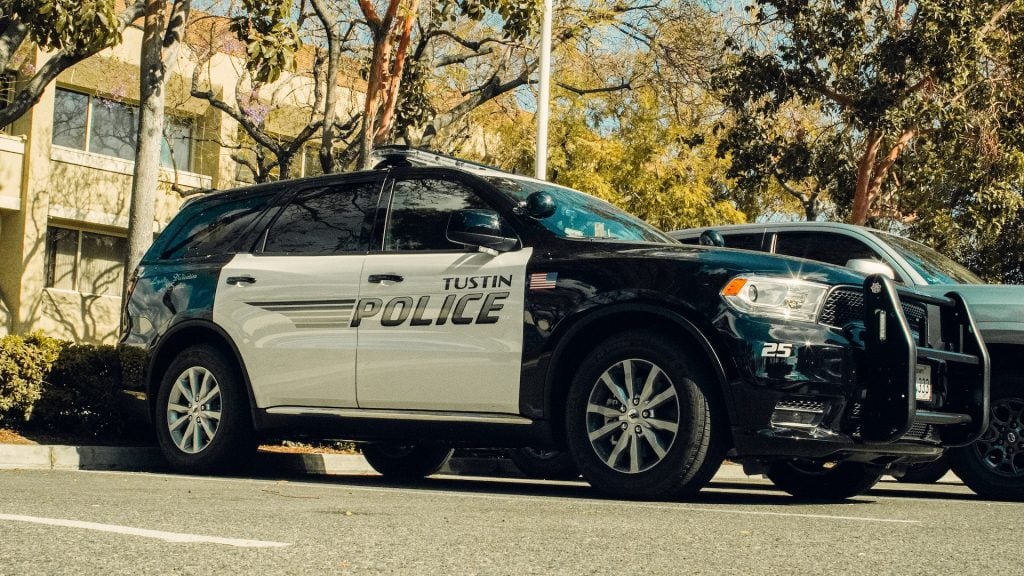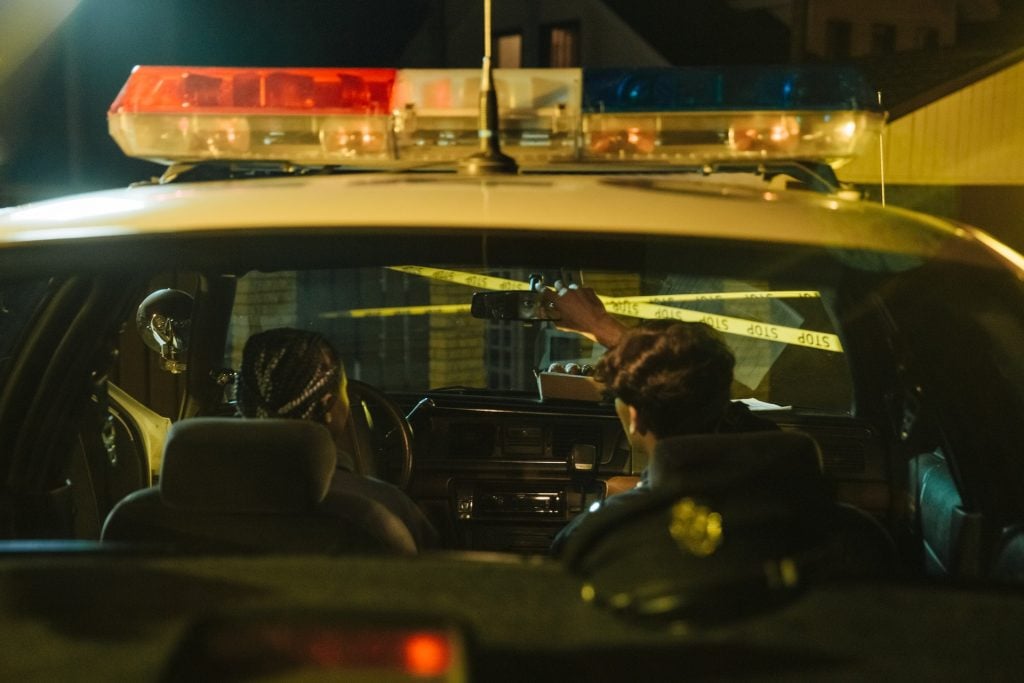Car accidents can happen anywhere, not just on busy roads and highways. Private parking lots are also common locations where fender-benders and minor collisions can occur. If you find yourself in such a situation, you may wonder if the police will respond to the incident in a private parking lot. Additionally, you might be concerned about how this type of accident could impact your car insurance. Let’s explore this scenario in-depth and understand what steps you should take.
Police Response in Private Parking Lots
Accidents can happen anywhere, even in private parking lots and on private roads. But when it comes to police response to such incidents, things can get a bit more complex than accidents on public roads. Many people wonder whether the police will respond to accidents that occur in private parking lots or on private roads. Let’s delve into this topic and explore the factors that influence police response in these situations.
Legal Jurisdiction and Authority
One of the key factors that determine whether the police will respond to accidents in private parking lots and on private roads is the issue of jurisdiction and legal authority. Police officers have the authority to enforce laws and maintain public safety on public roads and spaces. Private parking lots and roads, on the other hand, are owned and managed by private entities or individuals. As a result, police jurisdiction and authority may be limited in these areas.
Severity of the Accident
In some cases, police may respond to accidents in private parking lots and on private roads if the accident involves serious injuries, significant property damage, or criminal activity. If an accident leads to injuries that require immediate medical attention or if there is evidence of impaired driving, reckless behavior, or other criminal actions, the police are more likely to respond, regardless of whether the accident occurred on private property.
Property Owner’s Request
Property owners or managers of private parking lots and roads may also have a say in whether the police are called to respond to accidents. If the property owner or manager believes that police intervention is necessary to document the incident for insurance or legal purposes, they may request police presence.
Civil Matter vs. Criminal Matter
Accidents that occur in private parking lots or on private roads are often treated as civil matters rather than criminal matters. This means that the individuals involved may need to rely on their insurance companies to handle the claims and compensation process. The police may not be directly involved in determining fault or liability unless there are clear indications of criminal behavior.
Local Regulations and Policies
Police response to accidents in private parking lots and on private roads can also vary based on local regulations and departmental policies. Some police departments may have specific guidelines regarding when officers should respond to these incidents, while others may leave the decision up to the discretion of the officers on duty.
Alternative Options
In situations where the police do not respond to accidents on private property, individuals involved in the accident can take certain steps to ensure their rights are protected and proper documentation is obtained. These steps may include:
Contacting Local Authorities: Even if the police do not respond, individuals can still contact the local non-emergency line to report the accident. This can create an official record of the incident.
Gathering Information: Collecting as much information as possible from the other party involved in the accident, such as their contact and insurance information, can be crucial for insurance claims.
Taking Photos: Documenting the scene with photographs can provide valuable evidence for insurance purposes.
Contacting Insurance: Contacting your insurance company promptly to report the accident and initiate the claims process.
Importance of Gathering Information

Even if the police don’t respond to the accident, it’s crucial to gather essential information for your car insurance claim. Make sure to obtain the following details from the other driver(s) involved:
- Name, contact information, and insurance details
- License plate number and vehicle make/model
- Photos of the accident scene, vehicle damage, and any visible injuries
Additionally, try to get contact information from any witnesses who saw the accident occur. Witness statements can be valuable in case of disputes during the claims process.
Reporting the Accident
A car accident can be a stressful and overwhelming experience, but gathering relevant information immediately after the incident is crucial for a smooth claims process and potential legal proceedings. By taking the right steps to gather information, you can ensure that all necessary details are documented accurately. Here’s a helpful guide on what to do to gather information after a car accident:
Prioritize Safety First:
Before gathering any information, prioritize safety. Check yourself and others involved in the accident for injuries and call emergency services if needed. If it’s safe to do so, move the vehicles to a safer location to avoid obstructing traffic and minimize the risk of further accidents.
Exchange Information with the Other Driver(s):
Exchange essential information with the other driver(s) involved in the accident. Obtain their names, contact numbers, and insurance details. Also, record the make, model, and license plate numbers of all vehicles involved.
Collect Witness Information:
If there were witnesses to the accident, collect their names and contact information. Their statements may be valuable in determining fault and providing additional details about the incident. Business in the area may have security camera photos or video that might have captured the event – this can be useful in claims handing, or in court.
Document the Scene:
Use your smartphone or a camera to take pictures of the accident scene, including the positions of the vehicles, property damage, skid marks, road conditions, and any relevant traffic signs or signals. These photographs can serve as valuable evidence during the claims process.
Note Environmental Conditions:
Make note of the weather and lighting conditions at the time of the accident. Also, observe if there were any road hazards or obstacles that might have contributed to the collision.
Record Police Information:
If law enforcement responds to the accident, obtain the police officer’s name, badge number, and the accident report number. This information will be crucial when filing an insurance claim or pursuing legal action.
Document Injuries and Medical Treatment:
If you or anyone else involved in the accident sustained injuries, document them and seek medical attention promptly. Keep a record of medical treatment received, including any hospital visits, prescriptions, and medical bills.
Contact Your Insurance Company:
Report the accident to your insurance company as soon as possible. Provide them with all the information you gathered at the scene. Be honest and accurate in your account of the incident to avoid potential complications with the claims process.
Preserve Evidence:
Keep all relevant documents and evidence related to the accident, including photographs, medical records, and communication with the insurance company and other parties involved.
Reporting the Accident:
Even in cases where the police don’t respond to the scene, it’s essential to report the accident to your local law enforcement or through a non-emergency police number. This step is necessary for insurance purposes and creates an official record of the incident.
Handling Car Insurance Claims:
When it comes to car insurance claims for accidents in private parking lots, the process is similar to accidents on public roads. If you were not at fault, you can file a claim with the at-fault driver’s insurance company. Provide them with all the relevant information you gathered, and they will investigate the claim.
If you were at fault or unsure of the liability, you can still file a claim with your own insurance company. This is where having comprehensive coverage or collision coverage can be beneficial, as it can help cover the cost of repairs to your vehicle.
Impact on Insurance Premiums:
Filing a car insurance claim for an automobile accident, whether in a private parking lot or on the road, can have implications on your insurance premiums. If you were not at fault, your rates might not be affected. However, if you were deemed at fault, you might see an increase in your premiums upon renewal.

Final Thoughts
While the police may not always respond to car accidents in private parking lots, it’s essential to take the right steps to protect yourself and your car insurance claim. Gathering information at the scene, reporting the incident, and contacting your insurance company promptly are crucial in ensuring a smooth claims process.
Whether the police respond to accidents in private parking lots and on private roads depends on a variety of factors, including the severity of the accident, the property owner’s preferences, and local regulations. While police response may not always be guaranteed, individuals involved in such accidents can take proactive steps to ensure proper documentation and reporting. As with any accident, prioritizing safety, communication, and responsible behavior remains paramount, regardless of where the incident occurs.
Remember, each insurance policy may have different terms and conditions, so familiarize yourself with your coverage to know what to expect in case of an accident. Stay vigilant, drive safely, and be prepared for any unforeseen events on the road, or in a parking lot.


